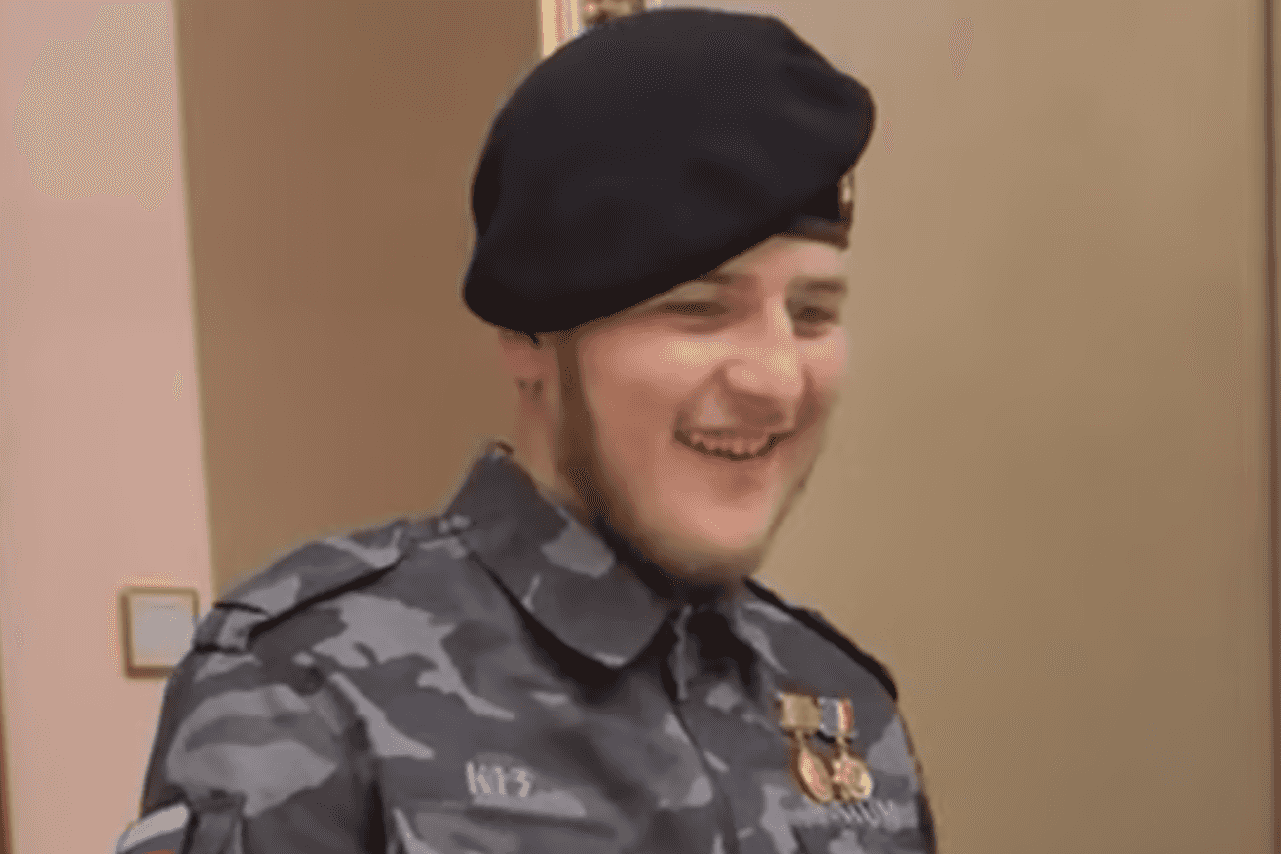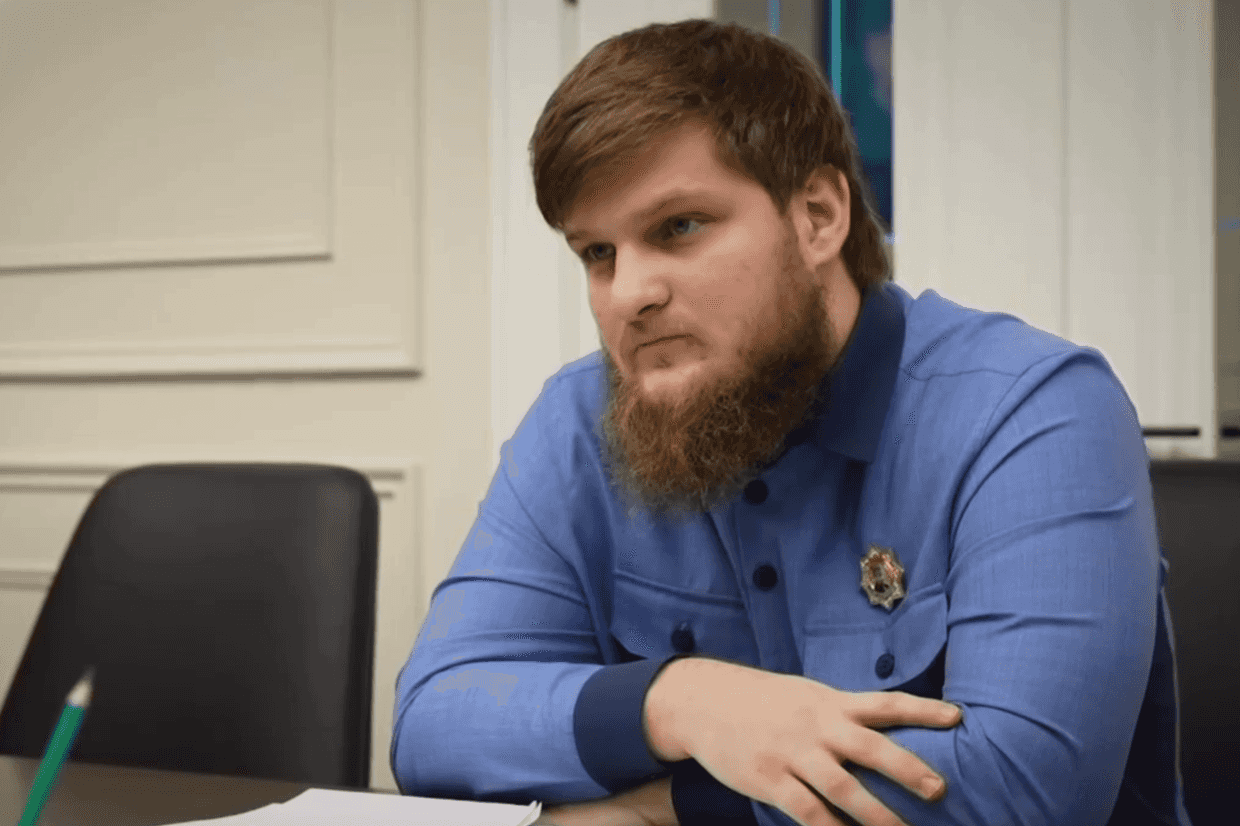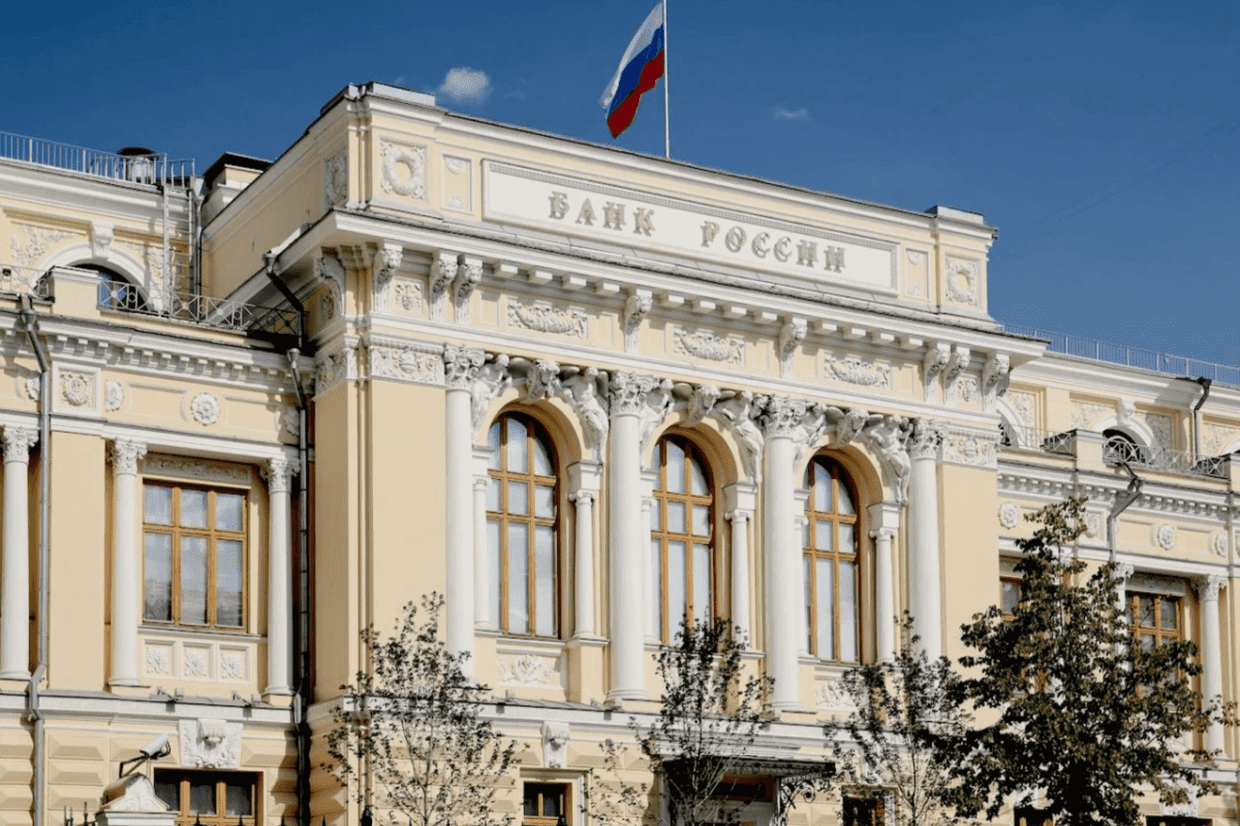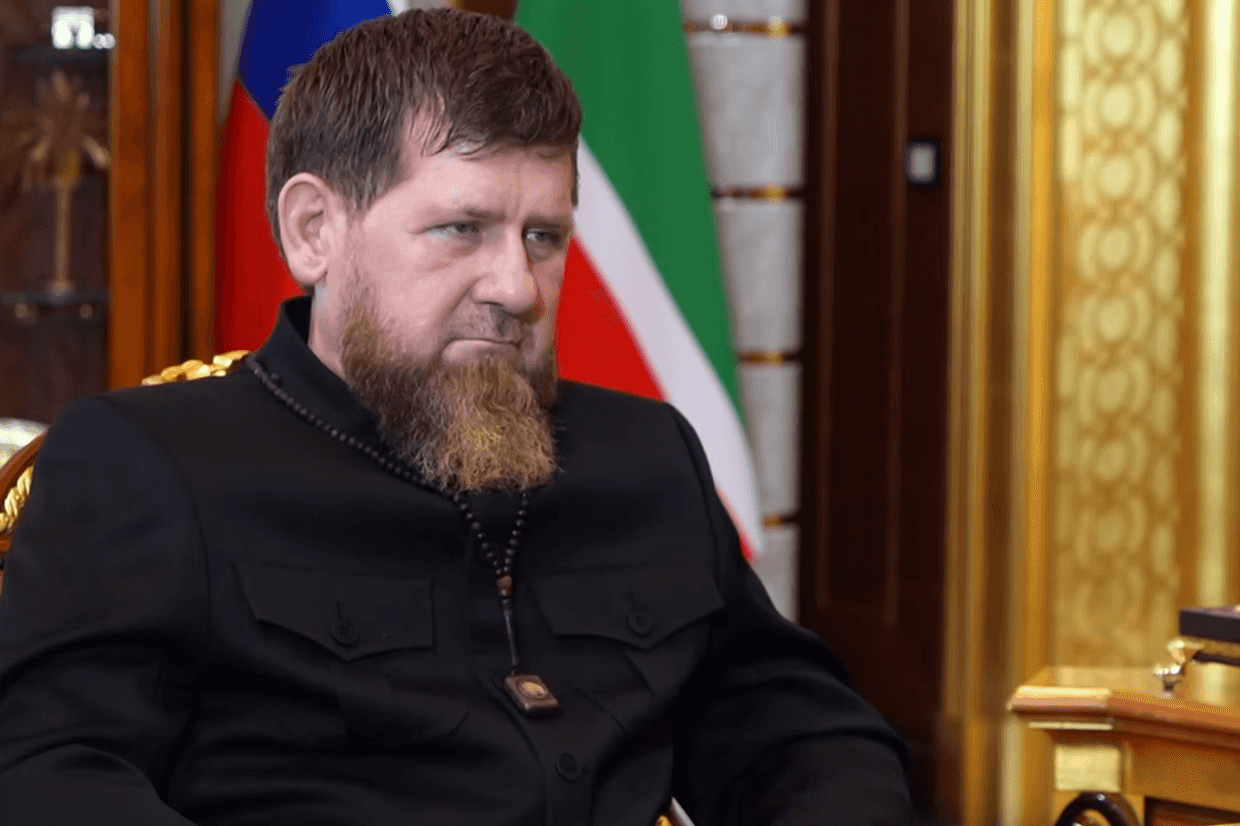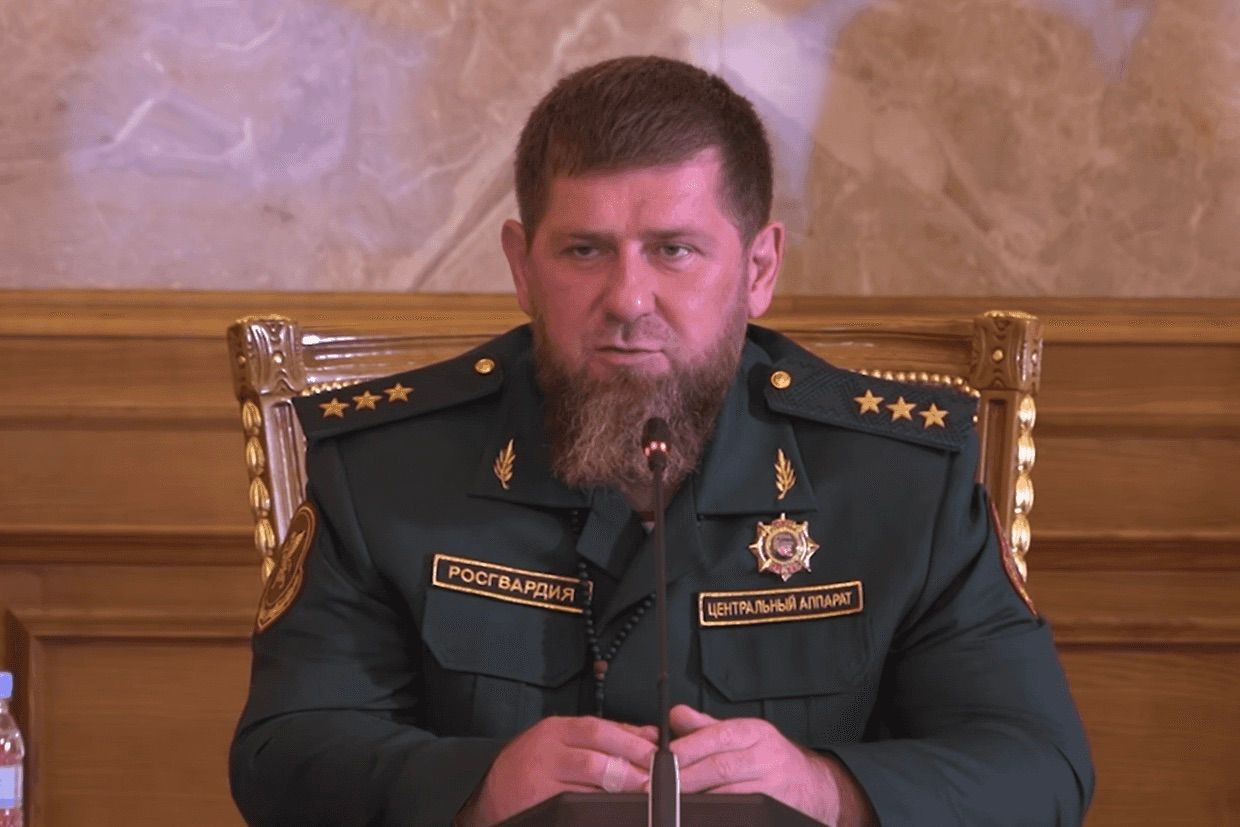
Chechen Head Ramzan Kadyrov has issued an order to law enforcement agencies to deport the relatives of a Chechen teenager who attacked police on Monday. Kadyrov’s statements came during a security meeting in Grozny with the heads of local police and security services.
The incident that prompted Kadyrov’s response occurred on 7 April in the Chechen village of Achkhoi-Martan. According to official reports, a 17-year-old local resident attacked officers at a stationary traffic police checkpoint with a knife, killing one officer and injuring another. The attacker was shot dead at the scene by return fire.
The assailant’s name has not been officially disclosed, but OC Media, the opposition movement Niyso, and several Telegram channels identified him as Eskerkhan Khumashev. The motive behind the attack has not been officially announced, and it remains unclear whether a criminal case has been opened or under which article of the Criminal Code.
‘The Interior Ministry and the National Guard (Rosgvardiya), together with the Federal Security Service (FSB), must deport the fathers and brothers of those behind this [attack]. Their property should be confiscated. If they do not stop working for Ukraine, which finances them, then the rest of their relatives should also be expelled. The same applies to the one who attacked the traffic police post’, Kadyrov said in Chechen, according to a translation published by the state-run local news agency Chechnyatoday.
Kadyrov argued that not only the direct perpetrator of the attack should bear responsibility, but also his family members, if they knew about the planned crime, encouraged it, or condoned the violence.
‘Each of them must understand that they will be held accountable for the criminal actions of their relatives’, he stressed.
According to Kadyrov, authorities have identified individuals who allegedly coordinated the attacker’s actions. He claimed these individuals are originally from Chechnya but are now residing in Turkey. Furthermore, he claimed that the operation was directed from Ukraine, though he provided no evidence to support his allegation.
According to the opposition movement Niyso, a rally was held in Achkhoi-Martan on Wednesday, to which budgetary employees and students were forced to attend — classes were allegedly cancelled in the district for this purpose. At this rally, residents allegedly demanded the eviction of the family of the person who attacked the police post.
According to Niyso, the body of the deceased teenager was brought to the rally and was placed on the ground in front of everyone and kicked.
Earlier on Wednesday, the abducted members of the attacker’s family were taken away from the Achkhoi-Martan police station in trucks, but their ultimate destination was unknown, Niyso claimed. In total, the Telegram channel listed five relatives of the teenager.
During the same meeting, Kadyrov also announced heightened security measures across the republic. He described a new phase of ‘preventive actions against extremism and terrorism,’ including a ‘detailed analysis of information flows’ and surveillance of online content that, according to the authorities, could lead to radicalisation.
Kadyrov warned that security forces had been given a ‘clear task — to punish everyone responsible to the full extent of the law’. He described the attack on the traffic checkpoint as ‘an attempt to use our children as weapons against their own people’, and promised a harsh and unambiguous response.
As of now, no official statements have been made by Russia’s Ministry of Internal Affairs, the National Guard (Rosgvardiya), or the FSB regarding the legality of Kadyrov’s demands to deport relatives or seize their property. No legal basis for such actions has been outlined by any of the agencies’ press services.
Russian law does not recognise the principle of collective responsibility. Nevertheless, similar practices have previously been reported in Chechnya, often carried out unofficially and without formal legal procedures. Human rights organisations, including Memorial and Human Rights Watch, have repeatedly documented such actions against the families of individuals accused of terrorism in the North Caucasus.
Although federal officials have not commented on Kadyrov’s recent statements, Russian MP Mikhail Matveev publicly supported the Chechen leader’s initiative.
‘Perhaps the initiatives of the head of Chechnya do not fully comply with legal standards, but they do appear to be effective and take into account the real situation on the ground’, Matveev told the state-run news outlet Gazeta.ru.



